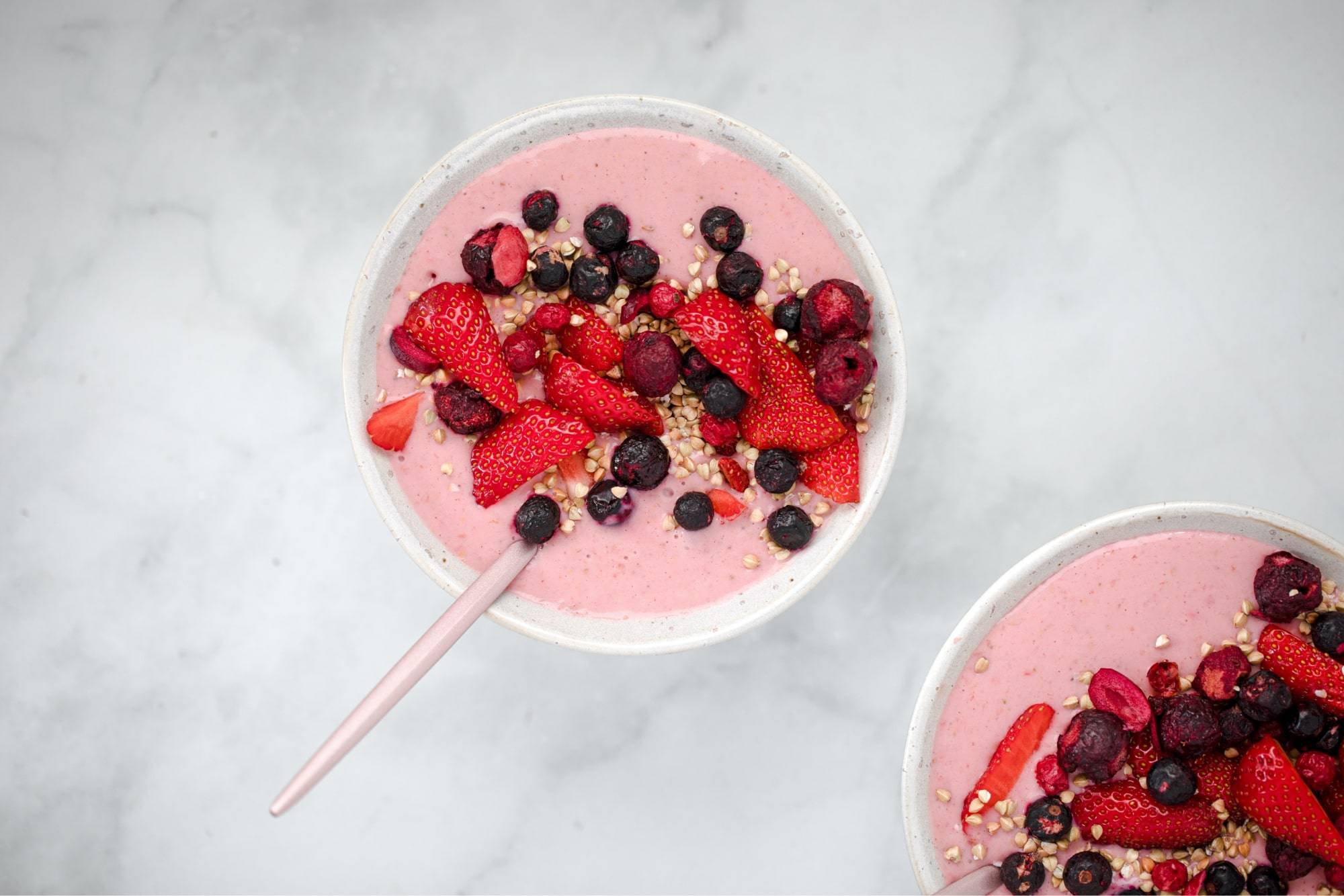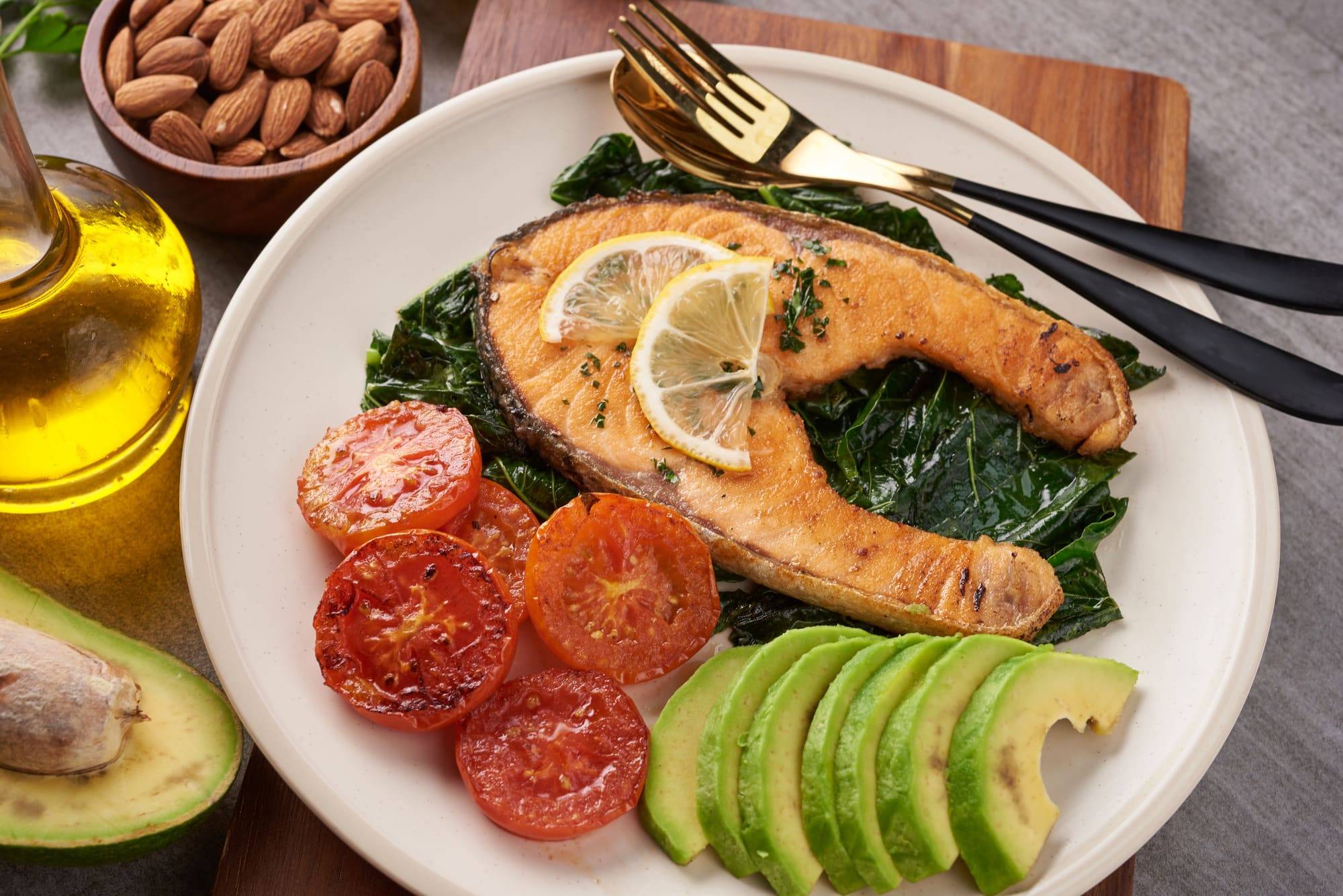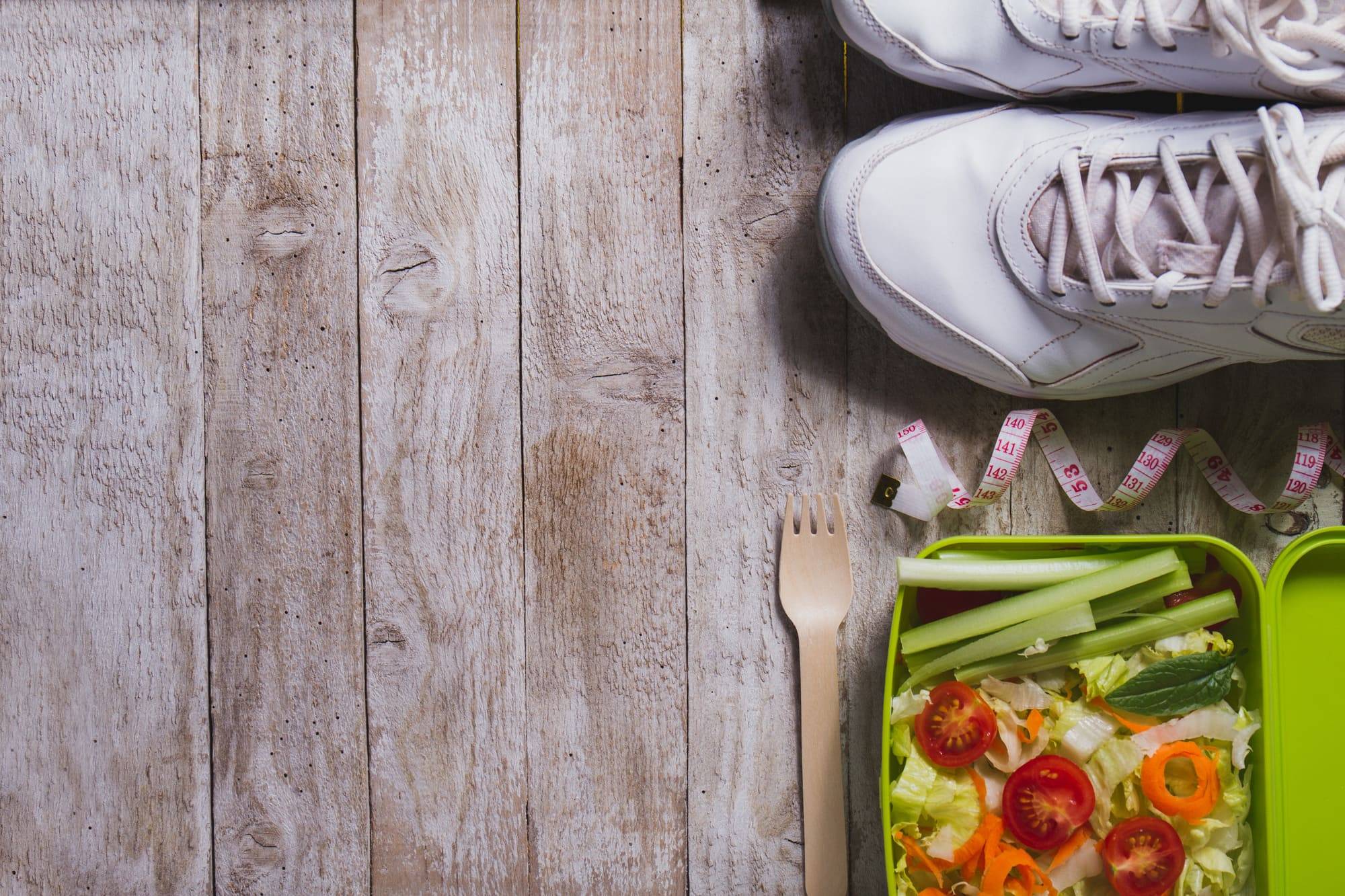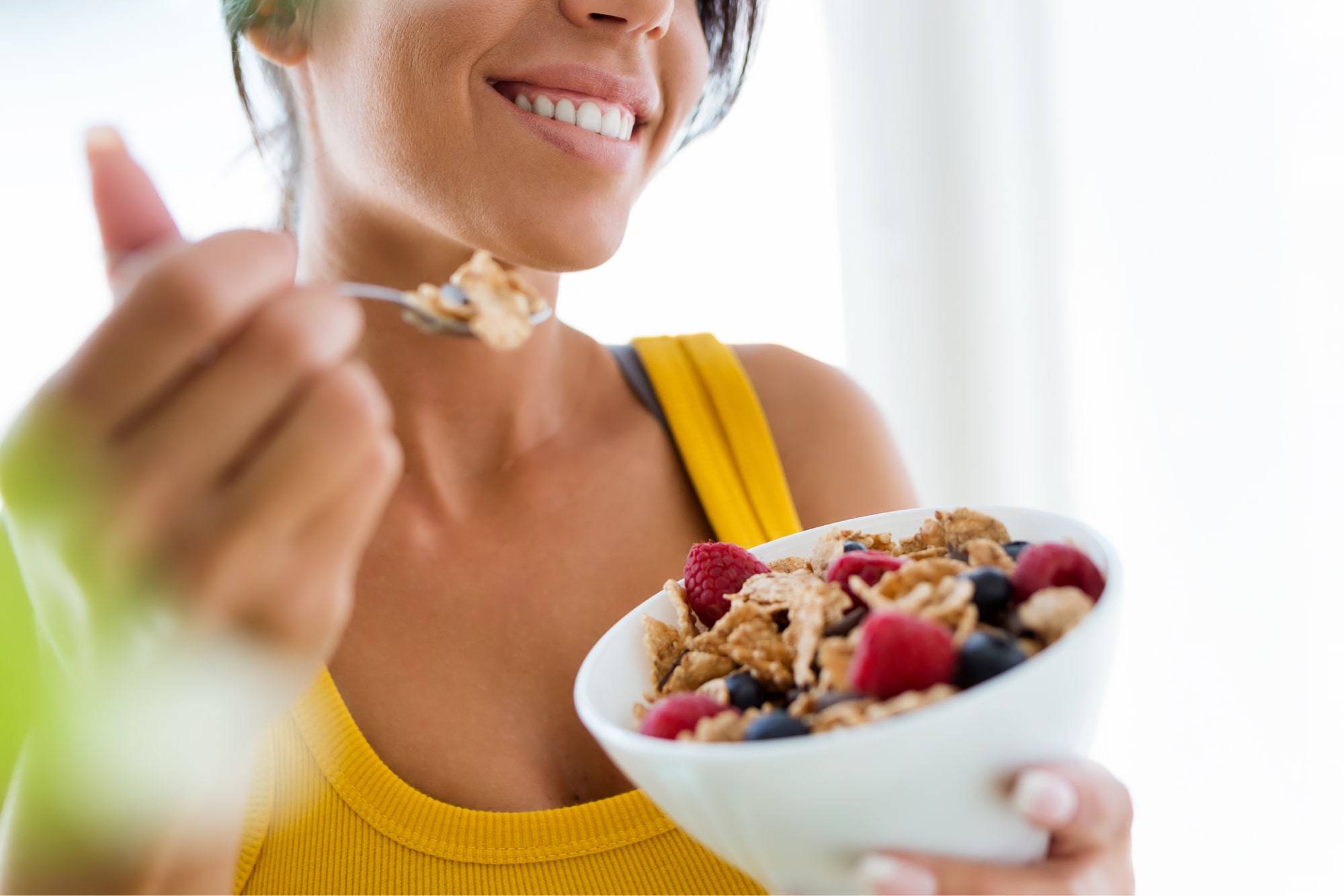To understand how recovery food works, we need to understand how physical activity affects the body. The more you run, the more glycogen stores are depleted. You also lose water and electrolytes with sweat. And finally, muscle fibers are destroyed, which need amino acids from protein to repair.
The right nutrition will help your body:
- reduce muscle protein breakdown;
- increase muscle protein synthesis (growth);
- restore glycogen stores; and
- speed up recovery.
Studies show that an athlete’s muscles are most receptive to replenishing glycogen stores immediately after a workout. So, there is a possibility to minimize the pain after running if you eat half an hour after a workout.
Period 1: Best Post-run Foods within 30 Minutes
The best nutrients within half an hour after a run are a mixture of carbohydrates and proteins. It is recommended to consume 100-300 calories.
The ratio of carbohydrates to proteins in this after-workout meal should be 3:1 or 4:1. This helps the body synthesize muscle glycogen more efficiently than carbohydrates alone. Eating too much protein, in turn, prevents the body from absorbing carbohydrates, slowing down the rate of gastric emptying. However, a small amount of protein helps produce the amino acids needed for muscle recovery.
Eat as soon as possible after training. Ideally, you should eat (or at least have a snack) within half an hour after a run. You can even postpone your shower and have a snack first. The right food within 30 minutes after your workout is your first step towards a better run tomorrow.
Period 2: 1 Hour After the End of the Workout – Muscle Repair Foods
In addition to eating carbs after running, the best foods are high in protein and healthy fats during this period.
The goal of food eaten between 30 minutes and 60 minutes after a workout is to help provide your body with the right combination of nutrients at the right time to reduce inflammation, increase muscle glycogen stores, and repair damaged muscle tissue. However, it is important that you don’t eat more calories than you actually need.
Examples of simple and easily digestible products for the second period:
- carbohydrates: potatoes, sweet potatoes, rice cakes, pasta, fruits (pineapple, berries, banana, kiwi), oatmeal, buckwheat
- proteins: eggs, Greek yogurt, cottage cheese, tofu, salmon, chicken, beef
- fats: avocados, nuts, nut butter.
9 Best Foods to Eat After a Run
So, the best foods for runners may be the following:
- Low-fat cottage cheese or yogurt with berries or dried fruits. Dried fruits are more caloric than fresh ones. They will help you recharge and withstand even intense training.
- Oatmeal with honey and nuts. Oatmeal contains complex carbohydrates that will charge you with energy and help maintain adequate glycogen levels.
- Hummus with vegetables (carrots, celery, bell peppers). Hummus is a great food for runners: this product is rich in slow carbohydrates and protein and is very well digested.
- A slice of bread with avocado, peanut butter, or hummus. Peanut butter contains proteins and amino acids necessary for muscle recovery, as well as Omega 3, Omega 6, B vitamins, and minerals essential for normal heart activity, improving metabolism, and strengthening bones and the immune system.
- A protein shake after running. It protects the muscles from destruction, blocks the feeling of fatigue, and makes it much easier to endure the training process.
- Eggs. Protein is a building block for muscles, helps to restore them after training, and regulates hormone levels.
- Chocolate milk (there is a study showing the high effectiveness of chocolate milk for post-run recovery). It has a positive effect on strength development and is a good post-exercise recovery supplement.
- Chicken or turkey. A healthy and easy-to-prepare dish is chicken or turkey with vegetables. Either can be boiled, baked, or grilled. If you are already tired of this combination, replace your usual vegetables with something more interesting, like sweet potato instead of potatoes, eggplant instead of zucchini, Brussels sprouts instead of broccoli, and don’t forget pumpkin and mushrooms. You can experiment with homemade chicken sauces made with soy sauce, balsamic vinegar, or olive oil.
- Fish. Be sure to eat fish at least a couple of times a week — for example, cod, salmon, perch, halibut, perch, etc.
Some Extra Tips
“Runners should consume between 0.5 to .9 grams of protein per pound of body weight each day. For a runner weighing about 150 pounds, that’s 75 to 135 grams of protein a day”, says Ashley Ludlow, MS, RD, a member of Abbott’s nutrition sales team and a Road Runners Club of America certified running coach, triathlete, and marathoner.
An example of 75 to 135 grams of protein would be 100 g of boiled chicken, 200 g of cod steak, 100 g of boiled beans or lentils, and 70 g of low-fat cottage cheese.
Legumes are also an excellent source of vegetable protein.
Red and processed meat (sausages) should be reduced as much as possible due to the fact that these products increase the risk of premature death.
You need 5-6 g of carbohydrates per kg of weight. For a person weighing 65 kg, this is approximately 350 g of carbohydrates. An example of this would be 1 banana, 1 apple, a small portion of oatmeal, a portion of buckwheat (150 g), 100 g of dried fruits (dried apricots, prunes, raisins), and a couple of slices of bread.
You should eat cereals every day: oatmeal, buckwheat, rice, bulgur, and quinoa. They are an excellent source of carbohydrates that a runner needs so much.
Pasta is always a good idea. Choose durum wheat pasta and cook it to al dente. Add protein foods such as meat, fish, or seafood, or you can add some mushrooms and vegetables.
In addition, you must eat fresh vegetables and drink enough water. It is important to refuel fluid loss, especially if you don’t drink during exercise. If the run lasts less than 90 minutes, water is enough. However, for recovery after a long run, sports drinks will give an additional advantage in the form of replenishment of glycogen and electrolytes. Avoid over-sweetened beverages and beverages high in caffeine. They can cause stomach discomfort. When you sweat due to the heat, it is crucial to replenish your electrolytes.
Before running, it is better to eat some slow carbohydrates so as not to overload the gastrointestinal tract with proteins and fats. But after running, you can afford a full meal.
Common Mistakes in Nutrition After Running
- Too much food. Most of us overestimate how many calories we’re expended during exercise. If the goal is to maintain a normal weight, calorie intake should equal calorie consumption. If you hope to lose weight, calorie expenditure should exceed consumption.
- Compliance of “fuel” consumption with training loads. This means you need to eat more carbohydrates on heavy workout days and fewer carbohydrates with an emphasis on low-fat protein and healthy fats on recovery days.
- Postponing post-training snacks “for later.” Sometimes you are exhausted and just want to take a shower and lie down. But it is better to give the body some calories first, then rest.
The good news is that a small snack 30 minutes after a workout will help prevent fatigue and severe hunger, which will cause you to eat more than you planned.






